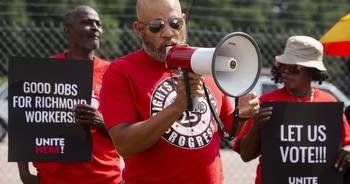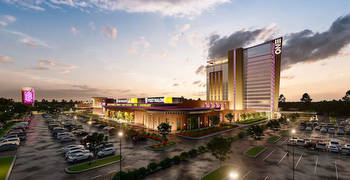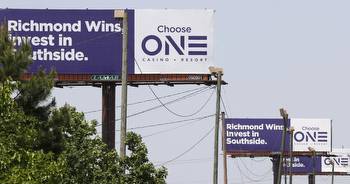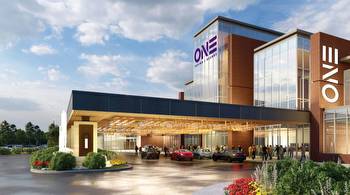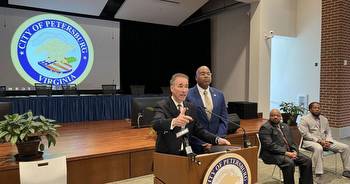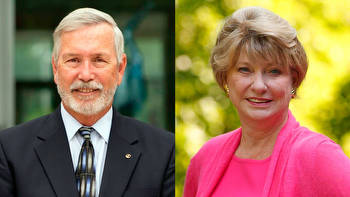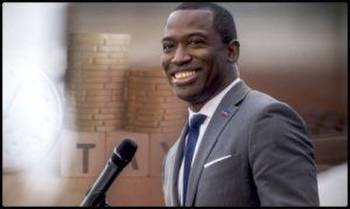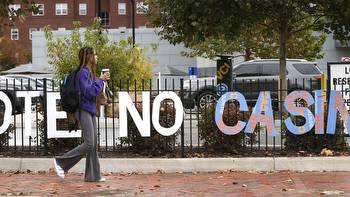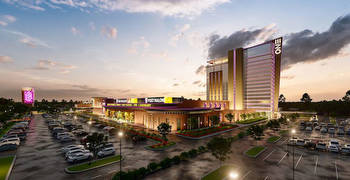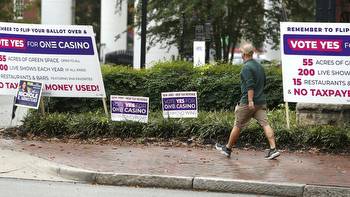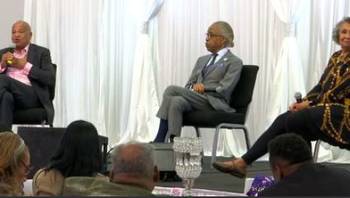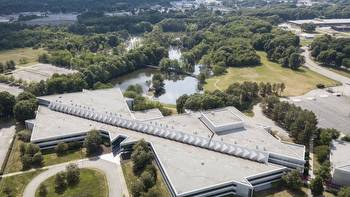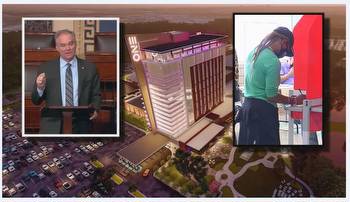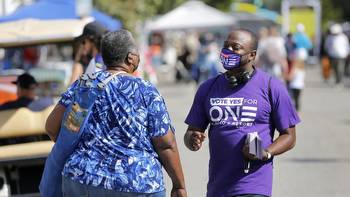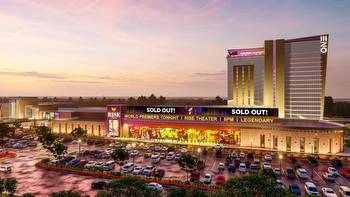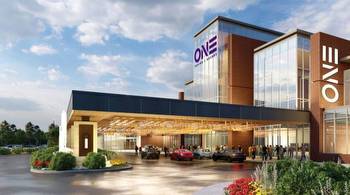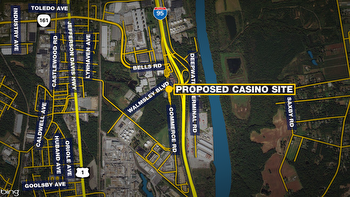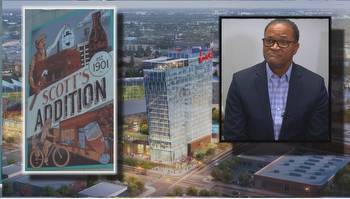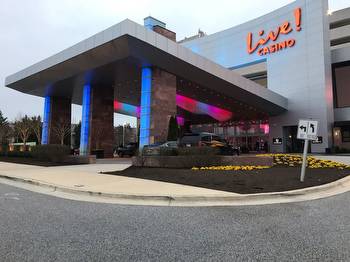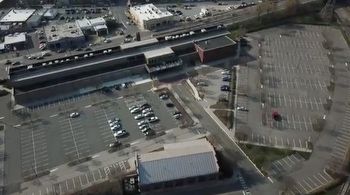Richmond picks Urban One casino in South Side for November referendum
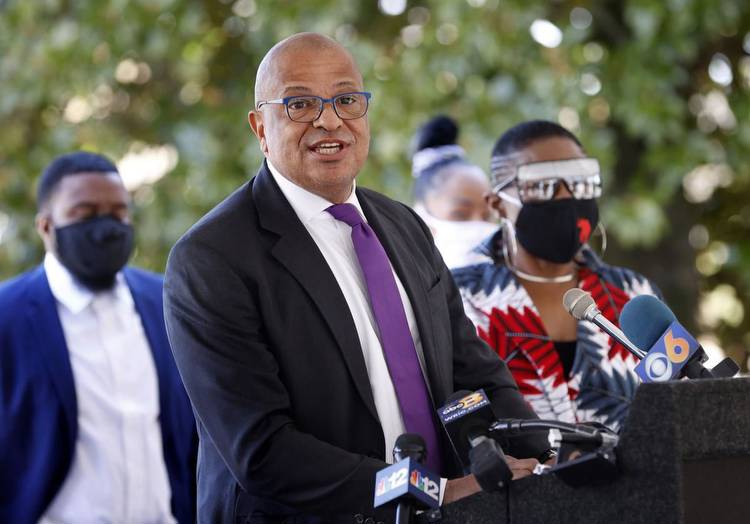
A panel of Richmond officials has selected Urban One's casino project in South Richmond, concluding a months-long evaluation of various casino development plans the city requested.
While Richmond voters will decide whether to permit the project in a referendum on Nov. 2, pending City Council approval, the evaluation panel's decision means that the city is no longer considering plans for a casino on Arthur Ashe Boulevard where the Bowtie movie theater currently stands.
Administration officials in a release said Mayor Levar Stoney will introduce plans to the City Council on Monday to partner with Urban One, a Washington-based media conglomerate, to build a casino on property currently owned by Philip Morris USA near the intersection of Commerce Road and Walmsley Boulevard.
“The project will create over 1,000 good paying jobs, generate a significant amount of new revenue for the city, and establish an additional economic engine in South Richmond," Stoney said.
The release says the evaluation panel recommended the Urban One project based on the project' "feasibility and sustainability, proposed location, economic development impact, financial revenue impact, and community benefits."
Urban One's projections predict the casino project will generate $525 million in new tax revenue and other benefits for the city over the next decade. The company also says it is committed to a $15 minimum wage for its employees, who is says will make an average of $55,000 annually.
City officials have said they do not plan to provide any public funding or incentives for the project.
Urban One, which operates several radio stations in the Richmond area, is partnering with Peninsula Pacific Entertainment, owner of the Colonial Downs racetrack and Rosie’s Gaming Emporiums, to run the approximately $600 million casino its planning to build.
“Urban One and our diverse group of local investors are fully committed to creating good paying jobs with profit-sharing for employees, pathways to successful careers, and generating significant new tax revenues that can improve Richmond’s schools and fund community programs and infrastructure," Alfred Liggins, CEO of Urban One, said in a statement.
Urban One would become the first Black majority owner of a casino since the late Don Barden, the first African-American casino operator in Las Vegas. Minority ownership of new and expanding business opportunities has become a major goal of the Virginia Legislative Black Caucus in the General Assembly.
“It’s important that Black folks begin to have a piece of the pie in these industries,” Del. Lamont Bagby, D-Henrico, chairman of the Black caucus, said Thursday in response to minority investment opportunities in Virginia’s new casino and marijuana industries.
Bagby said he doesn’t know the details of the Urban One project with Peninsula Pacific, “but everything I’ve heard indicates this is the first primarily Black-owned casino in the nation.”
The city solicited the development proposals under a new state law allowing Richmond and four other cities -- Norfolk, Portsmouth, Danville and Bristol -- to permit casinos if their respective voters approve it in a public referendum.
Initially, the legislation would have given Richmond the choice of projects proposed by the Pamunkey Indian Tribe, which also is seeking the license for a casino in Norfolk, and Colonial Downs, a Peninsula Pacific subsidiary. But the General Assembly sought to broaden the competition more than a year ago in part because Liggins raised the issue, as the owner of four radio stations in the region that target a Black audience.
"We'd like to build a big tent to bring other people along with us,” Liggins told legislators during a subcommittee meeting on the casino legislation 15 months ago.
In addition to lobbying for the changes, Liggins donated the campaigns of Black candidates in state and local races in Virginia, including $19,210 to Bagby and $10,000 to House Appropriations Chairman Luke Torian, D-Prince William, who made minority ownership and investment a priority in the casino legislation.
Locally, Liggins donated $5,000 this year to the campaign of Richmond City Councilman Michael Jones in his aborted bid to unseat Del. Betsy Carr, D-Richmond. The Urban One CEO also gave $1,000 each to three African-American candidates in last year’s mayoral race – Mayor Levar Stoney, who won re-election, and challengers Alexsis Rodgers and Kim Gray.
Voters in the other four cities overwhelmingly approved casino plans in popular votes last fall. Richmond and Danville have been the only cities to use a competitive bidding process to decide who it would partner with to build a casino.
After officially making a request for proposals in December, Richmond earlier this year received six development proposals. The city eliminated three of them within a few weeks, deeming their plans inadequate for a variety of reasons, such as financial projections and site selection.
The Pamunkey Indian Tribe, which is building a casino in Norfolk and was the first to introduce plans for a casino in Richmond in early 2020, drawing negative criticism from neighborhood associations near its originally proposed site in Manchester, were among those eliminated in the first stage.
Bally's Corp., a casino developer based in Rhode Island, made it through the first round, but the city eliminated its plans for a casino off Forest Hill Avenue near the Chippenham and Powhite parkways from contention last month after determining that approvals it would potentially need from state and federal officials could put the project in jeopardy. Many residents in the area also opposed the project, raising concerns about the impact it would have on quality of life, the surrounding environment and the graves of enslaved and freed Black people.
The Cordish Companies, which sought to build a casino on the Boulevard as part of its Live! brand, met similar neighborhood opposition. Urban One's project, meanwhile, saw some meager support from civic associations in South Richmond.
Zed Smith, COO for Cordish, said in a statement that the company was disappointed with the panel's decision, but wished the city luck as it moves forward.
"While we believe our site clearly would have brought the largest long-term economic benefit to the City and its residents, as evidenced by the City’s own independent, outside consultant, we respect the Evaluation Committee’s decision," Smith said. "Our engagement with residents and businesses across the City has been incredibly rewarding. We are thankful and grateful for the many new friendships and connections within the community that we have gained from this experience."
More than a dozen neighborhood groups, including the Fan District, Ginter Park, Sherwood and Oregon Hill civic associations, officially stated opposition to the Cordish project, according to Jonathan Marcus, chairman of the RVA Coalition of Civic Associations.
In a letter to city officials earlier this week, the coalition submitted a series of pointed questions about the Boulevard casino project and raised the specter of ongoing opposition if the city were to select it. "The City will face years of litigation and protests to stop a casino at the site," the letter stated. "Is the City prepared for and can it justify spending citizen tax dollars in this way?"
In an interview earlier this week, Richmond Councilman Andreas Addison, a member of the city's evaluation panel, said officials were considering public opinion as part of their review.
"One key factor in the last few weeks has been community support," he said. "I think it's heavily weighted. It shows which project has civic engagement and outreach. Those are important."








